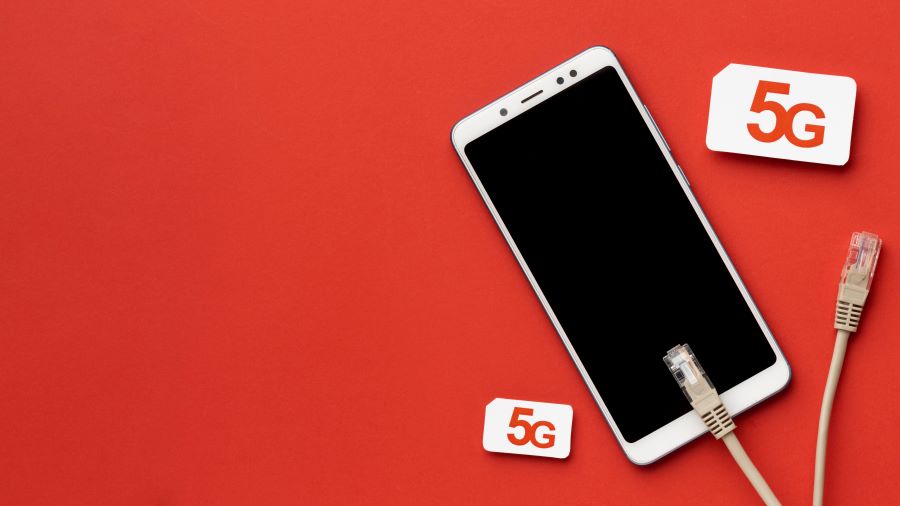Our smartphones serve as indispensable instruments in our lives, providing more than mere communication capabilities. These devices house a treasure trove of data, including personal and financial information. This highlights the imperative nature of safeguarding our smartphones. However, the question that arises is, how do you secure your mobile device?
Buy Airtel Prepaid with exciting benefits!
How you take care of your phone’s security can either keep your data safe or make it easy for others to steal it. Don’t worry, we’re here to show you some of the best ways to keep your phone safe.
How can I secure my smartphone?
To secure your mobile device, you will have to use some of the most practical solutions. And trust us, these solutions are extremely easy. You won’t have to be a tech geek to pull it off.
1. Use strong lock screen passwords
Your lock screen password is the very first gateway into your device. Therefore, having a strong smartphone lock screen is of utmost importance. Moreover, there are many people who do not even have a smartphone lock. And there are many who keep their smartphone passwords as 123456 or 987654 or something else that can be easily guessed. It is advised that you always go for passwords that are hard to guess or come up with.
Also, modern-day smartphones come with biometric locks such as fingerprint readers, that are a great way to secure your smartphone too! When you equip your smartphone with a strong lock screen password, then it makes it very difficult to break into your smartphone. As a result, even if your device gets stolen or lost, others will not be able to steal your data.
2. Try using multi-factor authentication to improve your phone security
To enhance your phone security, you can also try to use a two-factor authentication (2FA) or multi-factor authentication tool. These tools are incredibly easy to use, and there are no complexities attached – all you have to do is enter two different passwords when you are trying to log in to a specific app or website.
The 2FA or multi-factor authentication systems are extremely useful when it comes to protecting valuable information – such as your banking details stored in the device. In addition, even with 2FA enabled, make sure that you regularly change your bank account password (ideally once every three months).
Read more: How to reduce daily mobile data usage on Android & iOS
3. Avoid using public Wi-Fi
What’s not to love about free Wi-Fi? However, the bitter truth is that a Free and especially the public Wi-Fi is one of the easiest ways via which hackers enter your smartphone, without your knowledge. Most of these Wi-Fi points are not encrypted or protected, and users can get affected quite badly.
Therefore, make sure that you always use your mobile data when you are in public. If you have less mobile data, then consider doing an online mobile recharge. Or, if you are in real need of public Wi-Fi, make sure that you check if the connection is protected by WPA or WEP. In addition, always turn off your mobile Wi-Fi and battery while you are not using them – it protects your smartphone data and your device battery too.
Read more: What is safe mode in a smartphone and how to enable it?
4. Start using VPNs more regularly to boost phone security
Not sure about the security of a Wi-Fi network that you are connected to? Make sure that you download a VPN service. A virtual private network is a useful tool which helps to hide your actual IP address while you are browsing the internet. This, in turn, makes it difficult for hackers to steal data from your smartphone.
There are plenty of VPN services available out there – but they can be majorly broken down into paid and free versions. Between the two, it is always highly recommended that you go for paid versions because they offer a lot of benefits. However, if you have budgetary constraints and do not wish to spend, a free VPN connection is still better than no VPN connection.
Read more: 10 best VPNs for India in 2023
5. Update your software
Smartphone software can also be very easily targeted. That is why, smartphone manufacturers regularly release security upgrades for your smartphone. When you receive the notification for these updates, do not ignore them. Rather, make sure that you take time out for these updates (usually takes just 5 minutes) and complete them. It will help to improve your home security in the long run.
Be careful in the digital world
The internet is a vast place and is by far one of the most useful inventions by man. It has plenty going for it, but there are a few pitfalls that one should always avoid. And the best way to avoid such pitfalls is to stay on the side of caution.
Now, do note that we are not asking you to be paranoid while you are browsing the web. Instead, just keep your eyes open for anything that does not seem normal. For example, do not click on links that are sent by strangers, never reveal your banking information or OTP on the internet, do not visit unconfirmed sites or platforms that look unsafe, etc.
Read more: How to stop unwanted phone calls?
Other things that you can consider to boost your smartphone security
Here are some additional tips that can help boost your smartphone security:
- Do not use autofill passwords, but type them in
- Always log out after using sensitive apps or websites, such as online banking
- Visit websites that you trust
- Make sure you turn on mobile tracking for your device in case it ever gets lost or stolen
Read more: Easy hack to find a lost mobile phone
We hope this guide helped you. Secure your smartphone from the outside world and enjoy it without any worries!


 Get App
Get App  Airtel Store
Airtel Store  Login
Login 


